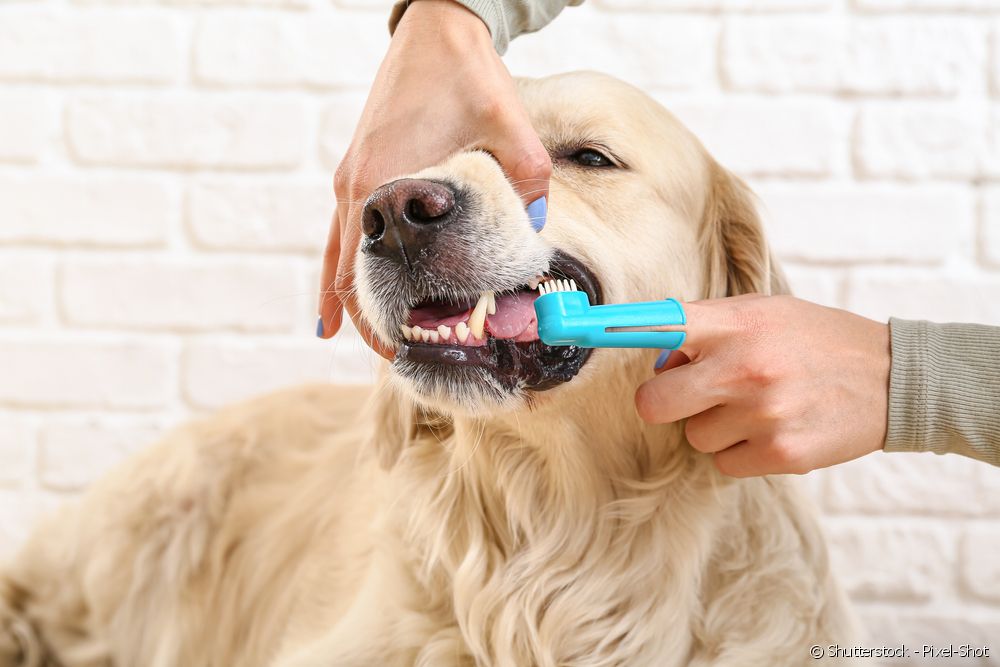Dog loses tooth in old age, what to do?

Table of contents
As much as, for the guardian, the dog is always a baby, the truth is that the third age also arrives for the furry ones - and it arrives quickly! At this stage, some changes in the organism can leave the dog slower, with white hair and flappy! Yes, dogs lose teeth in old age, especially when the guardian has not taken all the necessary care throughout the animal's life.Read on and find out what to do when your dog's tooth falls out and how to avoid this situation.
Dog losing teeth: what causes this problem?
Just like with humans, it is normal to see a dog losing its teeth when the animal is still a "child", around 4 to 7 months of age. It is at this stage that the dog gains its 42 permanent teeth, which will help it to feed, pick up objects, play and even defend itself throughout its life. But what about old dog teeth? Do they fall out too?
The answer to that question is yes. An elderly dog's teeth tend to fall out, but that doesn't mean they have to. What ends up happening is that the dog goes through life without having its teeth brushed - a habit that should be daily and that helps remove food debris from the entire mouth of the animal.
See_also: Savannah cat: discover the personality of the exotic cat that is one of the most expensive in the worldDog loses tooth in old age mainly due to lack of brushing
The accumulation of dirt forms bacterial plaque, which in turn gives rise to tartar. The yellow stains become impregnated in the dog's teeth and also affect the gums, also causing gingivitis and periodontal disease. When this condition sets in, the dog's gums can be seen to be redder and the teeth darker, in addition to bad breath.
Improper diet can also trigger teething problems in your dog. Salt and some spices used in our cuisine, for example, can negatively affect your dog's health, including oral health.
Old dog teeth fall out when they don't get the right treatment during their lifetime. The sooner the animal starts a healthy routine, the better.

How old does a dog lose its teeth?
The age at which a dog's oral problems will worsen to the point where the animal loses its teeth will vary from case to case. A pet that, even without having had its teeth brushed daily, has been accustomed to toys and treats capable of cleaning its teeth, has had regular visits to a veterinarian and has been given quality food all its life, tends to keep its teeth until the end of its life.
My dog lost his teeth: what to do?
The first step should be to take the dog to the vet so that the vet can assess the cause of the tooth loss. There may be inflammation that needs to be treated, for example. It is likely that the dog is also experiencing pain at this time.
More serious cases, in which the dog loses a significant amount of teeth, may make it necessary to adopt a new diet, since chewing grains of food can become a painful activity for the animal. Again, it is the veterinarian who will be able to indicate the canine diet most appropriate to the dog's state of health.
See_also: All about cerebellar hypoplasia in dogsIt's never too late to start caring for your pooch with all the zeal he deserves. Make him feel very loved - with or without teeth!

